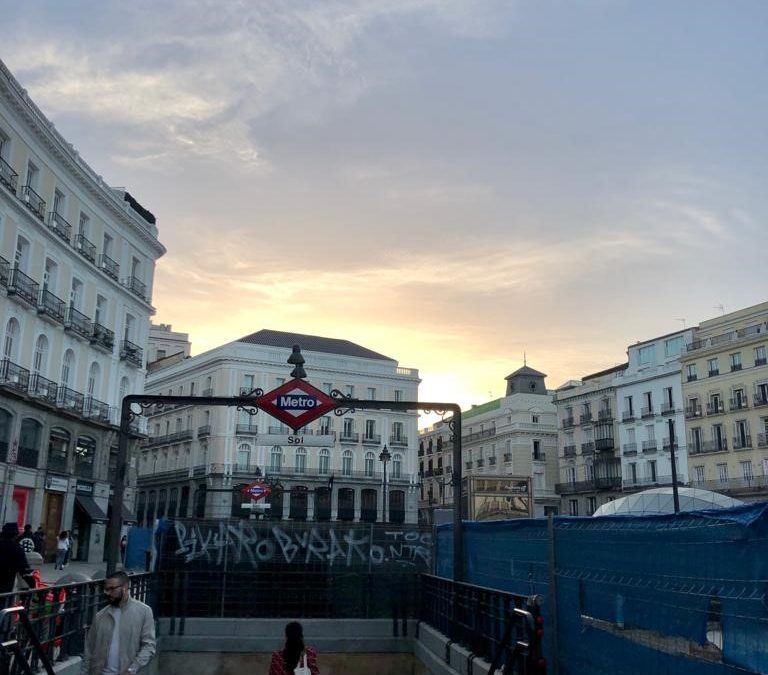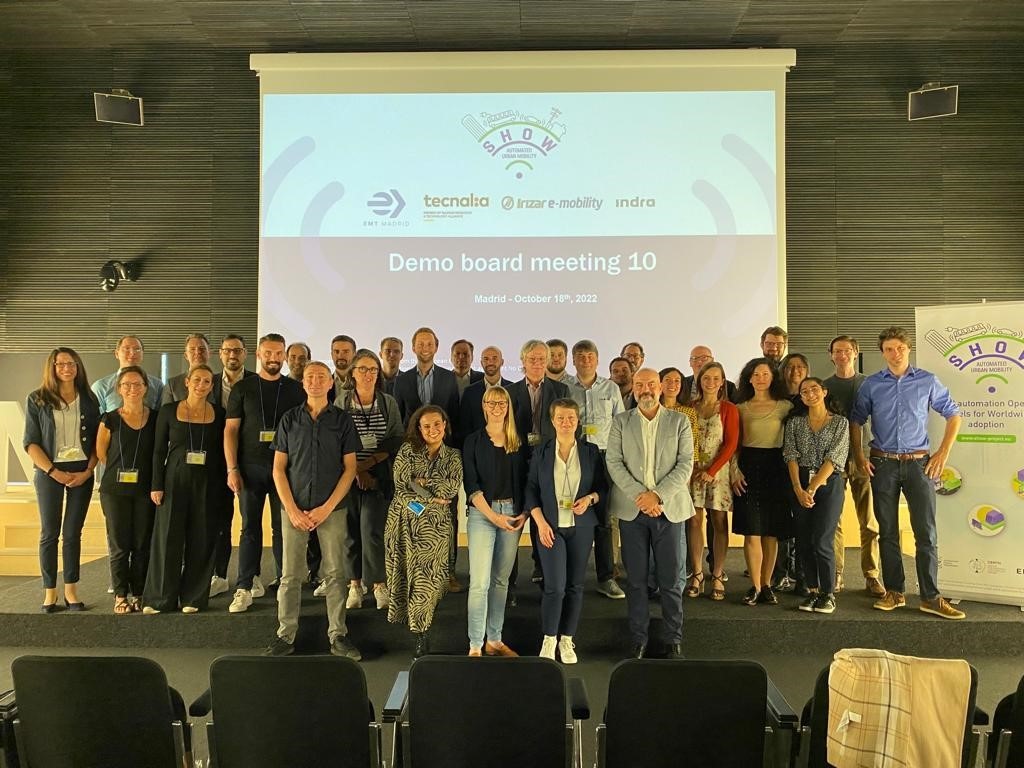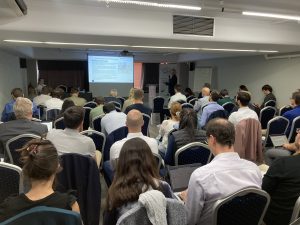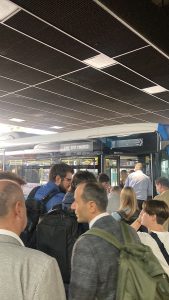
This October, the SHOW Consortium joined in Madrid for a jam-packed week where automated mobility took the centre stage. In addition to the demo board meeting and the 3rd Pan-European Workshop, the SHOW team had the pleasure to visit the automated bus depot at EMT Madrid and engage in various networking activities.
The week kicked off with the demo board meeting. Kindly hosted in the premises of EMT Madrid – one of our mega-sites leads – this meeting provided opportunity for SHOW demo leaders to discuss progress and challenges, touching upon topics such as user engagement, sustainable urban planning, among others.

3rd Pan-European Workshop
Highlight of the week was the 3rd Pan-European Workshop, which alongside consortium partners gathered CCAM experts from across Europe. One of the main goals of the workshop was to give demo leaders the opportunity to showcase progress and discuss challenges encountered in the sites that have already kicked off across Europe. In addition to that, a panel discussion was held and various guest speakers took to the stage, including from sister projects ABSOLUT and Ride2Autonomy.
The Workshop was opened by speakers from UITP, CERTH and the European Commission. Represented by Suzanna Kraak, the Commission highlighted the priorities and challenges in the CCAM sector today and how initiatives such as the CCAM partnership contribute to better align R&I efforts. We were also happy to welcome Alberto Alonso Poza, CFO of EMT Madrid, who discussed EMT’s Sustainability & Financing strategy and fleet transformation.
After, Anna Anund from VTI (Swedish National Road and Transport Research Institute) shared insights from the Linköping demo, reporting positive results yet putting the focus on measures to avoid hard braking and stopping.
Pekka Eloranta of SITOWISE explored the demo in the Helsinki suburb of Hervanta, which saw the deployment of an automated shuttle bus. He reported positive feedback from the Accessibility Working Group, yet also received reports that the vehicles were not (yet) as accessible as they should have been.

The demo in the Czech republic (three vehicles – two autonomous shuttles, one robotaxi) was represented by Marek Vanžura from CDV. Many relevant lessons learned were presented, among them the fact that electric vehicles, especially at low speeds, are too quiet and people do not notice them until they are very close.
From Germany, Florian Kuhnt from FZI explained how for the demo in Karlsruhe, they have joined forces with other projects, funded under the Germany government, to achieve the best possible results testing their EVA automated shuttle in public.
Exploring EMT Madrid’s vision on (automated) mobility
The second half of the day kicked off with a panel discussion moderated by Henriette Cornet (UITP) and welcoming Maria Gkemou (CERTH/HIT), Sergio Fernández Balaguer (EMT), Suzanna Kraak (EC) and Mario Nowack (Leipzig Transport Authority). Many topics were discussed on how to successfully deploy automated mobility across Europe: from accessibility and user engagement, to hurdles such as market and manufacturing limits within Europe.

After, the floor was given to EMT Madrid, both in the conference room as outside. First, EMT Madrid presented its work as SHOW Mega Site, sharing the use cases that are tested in the project and how they are working together with Tecnalia, Irizar and Indra to develop autonomous buses.
Finally, it was time to head to the EMT Carabanchel bus depot, where the SHOW team met with the people behind the scenes. Partners got the opportunity to ride on the autonomous bus, while also being guided through the facilities, including the maintenance and workshop areas.

A huge thank you to EMT Madrid for their hospitality throughout the week!
You can find all the presentations of the Pan-European Workshop here:
- SHOW_Welcome_by_UITP_and_CERTH
- SHOW_Suzanna_Kraak_EC
- SHOW_Alberto_Alonso_Poza_EMT
- SHOW_Tampere_Pekka_Eloranta_Sitowise
- SHOW_Linköping_Anna_Anund_VTI
- SHOW_Karlsruhe_Florian_Kuhnt_FZI
- SHOW_Brno_Marek_Vanzura_CDV
- SHOW_activities_in_Madrid_EMT_INDRA_IRIZAR_TECNALIA
- Ride2Autonomy_project_Giel_Mertens
- ABSOLUT_project_Mario_Nowack